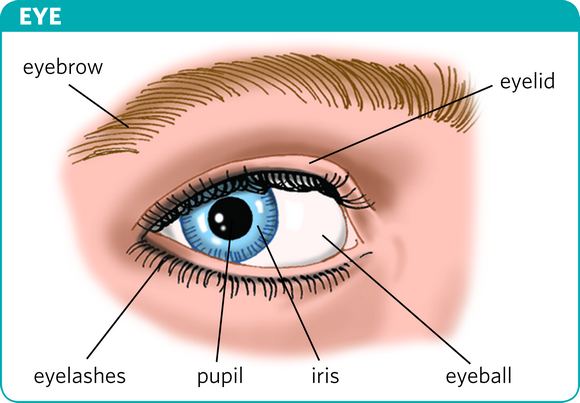From Longman Dictionary of Contemporary Englishpupilpu‧pil /ˈpjuːpəl/ ●●● S2 W1 noun [countable] 1 especially British EnglishSES someone who is being taught, especially a child About 20 pupils study music here. staff and pupils a star pupil (=a very good one) a third-grade pupil► see thesaurus at student2  HBHthe small black round area in the middle of your eye → iris
HBHthe small black round area in the middle of your eye → iris
 HBHthe small black round area in the middle of your eye → iris
HBHthe small black round area in the middle of your eye → irisExamples from the Corpus
pupil• The 20 pupils attending the meetings are ages 5-12.• The school has over 700 pupils.• Many teachers express concern that even their more able pupils do not fulfil their potential in the subject.• What this criticism draws attention to is the bitter truth about teachers' exclusive concentration upon creativity with working-class pupils.• The specialist teacher may find that some visually handicapped pupils require direct support teaching sessions.• The new law reduces the number of pupils per class in the first four years of schooling.• The instructors walk around with weapons on their belts and constantly remind their pupils to don their ear protectors.• Thus, although these pupils generally have difficulty with reading, this does not mean that written tests should be ruled out.star pupil• Elinor was a star pupil in her therapy class.• At school in Somerset, I was a star pupil - keen, confident and bright.• My Betty, star pupil of the arts line at Bedfordshire Comprehensive.• Glenn Stephenson was the star pupil of the group Mitchell nurtured.Origin pupil 1. (1300-1400) French pupille, from Latin pupillus “young boy who is looked after”, from pupus “boy”2. (1300-1400) Old French pupille, from Latin pupilla, from pupa “girl, doll”; because of the small image of yourself which you can see in someone else's eye 
